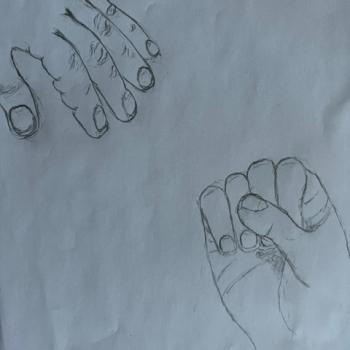
The Good News for the Day, August 28, 2022
The Twenty-Second Sunday in Ordinary Time (120)
The Gospel
One Sabbath, Jesus went to dinner at the home of a prominent Pharisee. There were others keeping an eye on him.
Seating at a Formal Meal
He told a story—a parable—to the people at the table because he noticed how some were picking higher up places on the social scale. “Whenever you get invited by someone to a reception or banquet, you don’t pick a place of honor for yourself. Some guest more distinguished than you may have been invited. The host then has to come up to you and tell you, ‘Give up your seat to this other person.’ You have to move with some embarrassment to take a less honorable seat.
No, when invited, find a lower place to sit, so that the host can say, ‘My friend, come on up to a better seat.’ Then you will enjoy respect from the rest of the people there.
A Summary
(Everyone who promotes themselves will get humiliated. Anyone who stays humbly honest will be raised up in people’s eyes.”)
Inviting to a Formal Meal
Then Jesus addressed the host who had invited Him: “Whenever you offer a lunch or a dinner, don’t invite just your pals, your brothers or sisters, other relatives or wealthy neighbors. You would be doing that so that they invite you back. Their return meal would be your repayment. No, if you are going to offer a public meal, invite people with needs such as, impaired ones, and in wheelchairs, or blind people.
How well off in fact you will be because of their inability to repay you. You get repaid in the lifting up of good people.” (Luke 14)
Reflections of the Words of Jesus
This behavior is how polite society has always acted. It is not a suggestion, model, or revelation. It is a description. When there is a formal dinner, a “head table” is for the wedding party, honored guests, prominent political figures, and intimate family. Nearby tables are for bridesmaids, groomsmen, and similarly significant people. At tables a little further off sit distant relatives, less significant people and visitors. People do formal dinners this way.
How Jesus Uses this Example
Jesus is talking about, Spirit, Heaven and self positioning in the “celestial banquet” – a favorite image for the kingdom of God. Both in the Hebrew Scriptures and at the many parties Jesus attends, he likes to compare partying to heaven. Parties mean companionship, letting loose, enjoyment and fun, and, usually, either an occasion to celebrate, or just chance at face-to-face that we all like – and laughter! This human event in time suggests an eternal,permanent state Jesus imagines as what he means by the kingdom of heaven.
The Partying Community
In the living community of our fellow Children of God, followers of Jesus are humble. We are the maître d’ who respects everyone that comes in the door. Followers of Jesus see everyone worthy of this party. We do not consider ourselves prominent or important, but employees and waiters for God, the Host, and the children of God. Like Jesus, we join the guests with this immense equality that being a child of God makes a person. No matter what spiritual condition, what belief, or what sinfulness, each living person is worthy of our respect. In this party, servants and guests are equal. We share joy. Dancing to music others do not hear is part of the celebration. We hear, as the poet put it, “a different drummer.”
The Special Guests
As the maître d’, someone who seats people, you and I pay special attention to those in need. In the mind of Jesus, these include primarily people excluded or disdained either by our society or by ourselves. Elsewhere Jesus suggests that among the guests are any number of surprising people. Love your enemies as they too are guests at the heavenly banquet.
Disagreeable, self-centered, deceitful, and grumpy people are on your guest list. Jesus speaks of the “disabled.” That is a metaphor, however, for the spiritual exclusion that you and I make. We disable people from our love. Excluded people are those we cut off in refusing to forgive or in finding other ways to look down on.
Political/religious opponents lock doors against each other – others whom God finds worthy.You and I make judgments of exclusion and condemnation when God does not. They are worthwhile because they are your and my fellow children of God. You treat them with special respect. Your respect raises them from the deadness of their souls, their sense of worthlessness.
The Importance Here
The Good News here, the call to repentance, suggests that we flip our disrespect for some into respect for everyone. Perhaps Jesus is suggesting something like this: If there is someone you look down on at His party–maybe you are earning a lower place at His party. “Love your enemies,” Jesus says. If you exclude an enemy from your respect, caring, and life – you may be excluding yourself from His party. If you disdain someone or a group, perhaps Jesus is saying here that, in God’s eyes, they belong in a more honorable place than you.
The challenge is this. Say you feel confident of your moral and spiritual superiority. then you are to take a humbler stance, and respect those poorer in spirit, those with less admirable and honorable conscience than what you consider yours. It is all about a humble Spirit. About honoring those disabled and wounded not so much in body as in heart and soul. Invite them to the circle of your table, Jesus says. Honor their damages and struggling with your respect.












